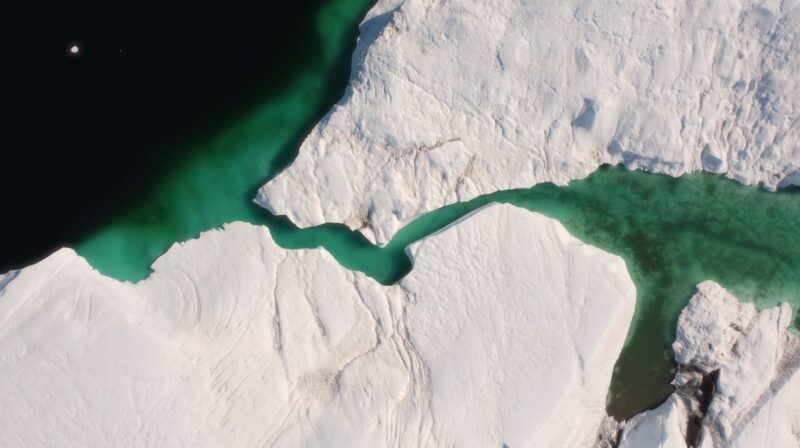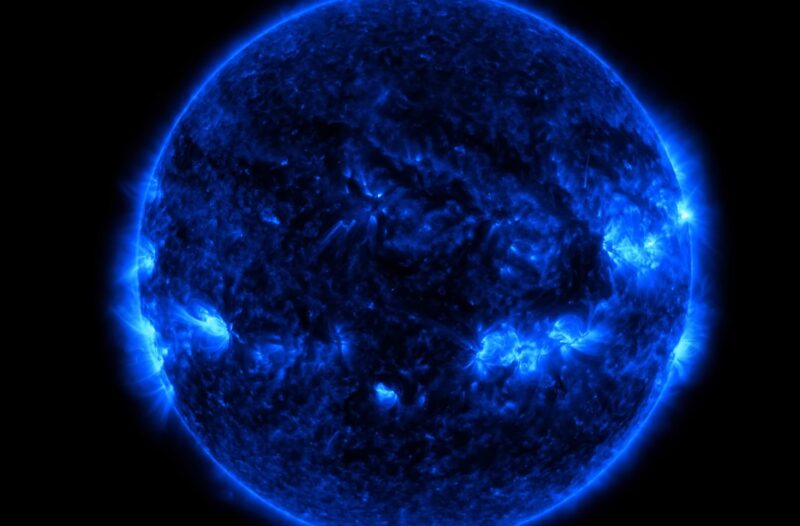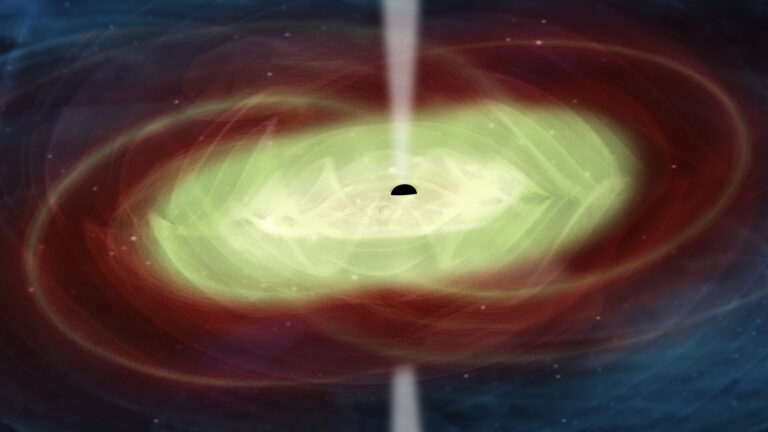The exosphere is like the outermost boundary between Earth’s atmosphere and outer space. Although it might not seem directly connected to our everyday lives, losing this layer would have significant consequences, impacting everything from space travel to Earth’s environmental health.
Today, we’ll look into what would happen if the exosphere vanished, simplifying the details of this crucial, high-altitude layer and why it matters so much.
Everything you need to know about the Exosphere
The exosphere is the outermost layer of Earth’s atmosphere, extending from about 700 kilometers above the Earth’s surface to about 10,000 kilometers, where it gradually thins into the vacuum of space.
The thin nature of this layer means it has very few air molecules, which increases the mean free path between collisions. Despite its sparse nature, the exosphere plays a crucial role in the dynamics of our planet’s atmosphere and its interactions with space.
Its existence marks the boundary where Earth’s atmosphere meets outer space, serving as a transitional zone for energy and particles.
What’s its role?
The exosphere serves several vital functions:
- Satellite orbit: It is the region where most satellites orbit the Earth. This high altitude minimizes friction with atmospheric gases, allowing satellites to maintain their orbits with less fuel and fewer corrections. The predictable nature of this environment is essential for the accuracy of satellite-based systems and scientific measurements.
- Filter for meteoroids: Small meteoroids often burn up in the exosphere before reaching Earth’s surface. This natural barrier helps protect the Earth from potential impacts that could be harmful if larger meteoroids were to strike the planet. The heat generated from these interactions also provides data for studying the properties of incoming space debris.
- Transition to space: It acts as a transitional layer between the atmosphere and space, playing a crucial role in the loss of Earth’s atmospheric gases to space, a process known as atmospheric escape. This gradual loss of gases, especially the lighter elements, is critical for maintaining the balance of Earth’s atmosphere over geological timescales.
What if it disappeared?

Immediate impact on satellites
If the exosphere were to disappear, the most immediate consequence would be on satellite operations. Satellites, including those critical for GPS, weather forecasting, and telecommunications, operate in this layer.
The increase in atmospheric density at these altitudes would require more frequent and more significant adjustments to satellite orbits, drastically increasing maintenance costs and reducing their operational lifetimes.
The disruption of these satellite networks would also have cascading effects on global communication, navigation, and data services, affecting almost every aspect of modern society.
Increased meteorite impacts
With the exosphere gone, its role as a buffer against meteoroids would diminish. More space rocks would reach the Earth’s surface, increasing the frequency of meteorite impacts. Although most of these would be small, their increased number could pose greater risks to populated areas.
The absence of the exosphere’s protective layer could lead to increased wear and potential damage to infrastructure from these frequent small impacts. Additionally, the visual spectacle of shooting stars would be notably lessened, affecting our night sky and potentially impacting global cultures that celebrate such phenomena.
Accelerated atmospheric loss
One of the most significant long-term effects would be on atmospheric escape. The exosphere plays a crucial role in the slow leakage of gases like hydrogen and helium into space. Without this layer, the process could accelerate, leading to a gradual thinning of the entire atmosphere.
This would not only alter the composition of our atmosphere but could also have severe implications for climate and the habitability of our planet. The accelerated loss of hydrogen could disrupt the water cycle by reducing the amount of water vapor returning to the surface, leading to drier climates and more extreme weather patterns.
This shift could severely impact ecosystems, agricultural practices, and water resources worldwide.
Climate change and environmental impact

The removal of the exosphere would also affect Earth’s climate. Although the exosphere itself is not directly involved in weather patterns, changes in atmospheric composition and pressure could alter global temperatures.
Thinner atmosphere holds less heat and may lead to a general cooling of the planet, affecting weather patterns and potentially triggering a new set of climatic conditions. This cooling effect could lead to longer and more severe winters, and potentially a mini ice age if other atmospheric and environmental conditions align.
Changes in climate would also impact biodiversity, with many species possibly struggling to adapt to the rapid changes, leading to higher extinction rates and decreased ecosystem stability.
Broader implications

The disappearance of the exosphere could also have unforeseen effects, potentially altering Earth’s magnetic field or interacting differently with solar winds and cosmic radiation. These changes could have further consequences for life on Earth, affecting everything from radiation levels on the surface to the functioning of electrical grids.
These broader implications underscore the critical need to understand and protect our atmospheric layers as shields against the vast and unpredictable nature of space.
The bottom line
While the exosphere might seem like a distant and disconnected part of Earth’s atmosphere, it is integral to many processes that maintain the stability and safety of our planet. Its disappearance would set off a chain of events, illustrating how interconnected and delicate our planetary system is.
Protecting this outermost shield is essential, not just for the sake of exploration but for preserving life on Earth as we know it.









